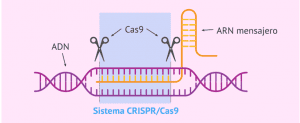ARTIGO ORIGINAL
SANTOS, Caio Oliveira dos [1]
SANTOS, Caio Oliveira dos. The succession of companions in the Civil Code. Revista Científica Multidisciplinar Núcleo do Conhecimento. Year 05, Ed. 06, Vol. 01, pp. 182-190. June 2020. ISSN: 2448-0959, Access link: https://www.nucleodoconhecimento.com.br/law/succession-of-companions
SUMMARY
This Legal Article was prepared as a conclusion of the graduation in Law by the Jorge Amado University Center. The theme addressed is of paramount importance, because there was a legal uncertainty about the succession of the companion in the civil code through art.1790, because it is the duty of the State to protect the Family by express constitutional provision (art. 226 CF (federal Constitution) /88) but following the guidance of the Federal Constitution and the jurisprudence of the Supreme Court it was established in order to equate marriage with the Stable Union and its succession regime as established by the theme 498 of that court. This article intends to demonstrate the unconstitutionality of Art. 1,790 of the Civil Code and for this purpose the bibliographic procedure was adopted, bringing together a large number of books, articles, laws and jurisprudence on the subject in order to allow a better understanding of the particularities of this succession.
Keywords: Succession of the companion, family protection, succession regime, Civil Code, Family Law.
1. INTRODUCTION
The article aims to address the unconstitutionality of Article 1,790 of the Civil Code of 2002, and the regime of art. 1,829 of the current Civil Code should be applied, both in the hypotheses of marriage and in those of stable union. There was a lot of legal uncertainty about the succession of the partner, however, with the theme 498, the Supreme Court finally equated the conjugal family and the stable union to establish the succession of the partner equally.
The Supreme Court reached this decision in view of the duty of the State to protect the family, in addition to the family is not an end institution, but a middle institution for the promotion of the dignity of the people who compose it and for the construction of a more just and egalitarian society.
Therefore, every family has the right to be protected by the Federal Constitution, and this, in turn, has the duty to provide all the rights that families are entitled to, regardless of their format and constitution, in accordance with Article 226 of the Federal Constitution of 1988.
This article will be divided into three sections. The first section refers to succession as a fundamental right arising from the principle of the dignity of the human person and the forms of interpretation. Also with regard to the techniques of interpretation for the benefit of the family constituted through stable union and with the consequent declaration of marriage succession equality.
The second section refers to the conceptualization of the term “Family”, the principle of Plurality of Family entities, demonstrating that this concept is much broader than is expressed in the Federal Constitution, and a more extensive interpretation should be given, since that list is only exemplifying.
The third section is intended to demonstrate the doctrinal position in the sense that Art. 1,790 of the Civil Code would be unconstitutional. Understanding that was confirmed by the jurisprudence of the Supreme Court through the theme 498, putting an end to any contrary understanding, promoting the pacification of the theme.
The method used in this scientific article will be the legal-sociological method seeking the concrete realization of the law, always aiming at social demands and needs and their adaptation to legal institutes. It is necessary to use this type of research since the theme worked is part of the law, a human science, in which “cold and precise numbers” may not bring the depth that is intended to be achieved.
A research addressing the legal-sociological method encompasses social needs by applying to legal institutes, since cold analysis of the law is not enough. The article also aims to work on documentary research, with doctrinal concepts, jurisprudential concepts and the legislation in question. Therefore, this article has as use of the legal-sociological method in the search for a dynamic research. Demonstrating method, content and quality.
2. SUCCESSION AS FUNDAMENTAL RIGHT THE DIGNITY OF THE HUMAN PERSON
The succession itself in our legal system is a fundamental right of the human person, since by honoring the human being as a subject of law, it recognizes the Right to succession of the “whose” in relation to its survivors. Inherent value to our democratic rule of law.
Human dignity can be considered a Foundation of the State, in its art. 1 of CF/88, and must be followed in all possible branches, we have as an example, civil law, civil procedure, criminal law, all branches of law must be interconnected with human dignity, in a way that is a true value, by constitutional will. Succession Law as well as Family Law, and like other branches of law, must follow the inherent value of human dignity in the pursuit of social justice.
We must then understand the interpretative branches of law to attribute a meaning to the norm of Art. 1790 of the Civil Code because the good interpretation is the one who can interpret the legal text[2], not it by itself, but its spirit, the four interpretations, emerge as a way to understand this feeling of the law, always seeking the intention of the legislator, being a search for an objectivism , by externalizing the meanings of the legal order.
Grammatical interpretation seeks the literal meaning of a particular legal norm. That is, we tried to understand what the legislator wanted to write, what words they used themselves. The etymology of the word is taken into question, seeking the etymological origin and applying the rules of agreement or regency, verbal or nominal.[3]
This technique is criticized in view that we should not only focus on what is simply written, but seek other means of interpretation. If we stick to the grammar of the norm, we will make the mistake of being positivist, incompatibilizing with our Constitutional Rule of Law. Grammatical interpretation should always be on the other interpretative methods together until we form the hermeneutic cycle. The systematic interpretation, in turn, analyzes the context of the norms, in view of the other norms within the legal system that is considered the whole. A true inevitable search for the global sense in a wide-ranging set, always involving a teleology, that is, a broad view of the legal system itself.[4]
The sociological interpretation aims to understand the reason for that norm, understand its original social relations, and always seek to innovate in the future interpretation, to seek the same purpose that gave rise to that norm in view of the current need.
All the interpretive means gathered form the hermeneutic cycle, very important in the search for the correct application of law in view, that the techniques gathered in a clear way, taking into account new social realities, is important because the legislator cannot quickly monitor the changes of society, it is up to the interpreting role of understanding through these methods the best possible way of applying the law in the concrete case.
According to this article, the intention is to use the interpretative techniques for the benefit of the family formed through the stable union and with the consequent declaration of marriage equality of succession with the companion of Art. 1790 of the Civil Code.
3. FAMILY CONCEPT, PRINCIPLE OF PLURALITY OF FAMILY ENTITIES, STABLE UNION
We must interpret the succession of the companion in the light of CF/88, enabling the Stable Union as a Family entity, taking into account the social reality theologically with the principle of equality of the magna carta itself in its 5th art. 5. The family is the existential nucleus integrated by people united by socioaffective bond, theologically dedicated to allow the full realization of its members.[5]
In the fática reality when concrete situations appear about the succession of the partner before art. 1,790 of the Civil Code, the interpretation given should always be in the sense of equating spouses and partners, always giving them an isonomic treatment. This interpretation is based on the principle of plurality of family entities, having a teleological interpretation, concise, clear, taking into account social purposes.
The Family Entity formed from the stable union, is based on intersubjective relationships, and affection is the search for personal achievements in search of happiness between both partners. Affection is the way to the construction of a diffusion of values within society itself. Lato senso, the word family encompasses all people connected by blood bond and who come, therefore, from a common ancestral trunk, as well as those united by affinity and adoption. It comprises spouses and partners, relatives and the like.[6]
The Constitutional Text makes us like to have in mind important principles, namely, constitutional equality and the universal value of the legal system, which is about the dignity of the human person (art. 1) a true super principle, a value to be followed by all legal systems, be it constitutional or infraconstitutional. We must then focus on the Law of Families, adhering to the norm the intersubjective relationships that arise over time.
On this constitutional precept of equality, then there should be no discrimination in relation to family entities, in view of the multi-family nature of family law, so there should be no differences with respect to Stable Union and Marriage, both of which are families and must be protected by the State and under the Constitution.
Since the Constitution is a true hierarchy of values, representing the family one of these values provided for in Article 226, § 3, by providing that the State should protect family entities, already at the time when the Civil Code of 1916 was in force, the principles contained therein were not to be followed, given that the Code was prior to the Constitution and consequently the constitutional principles should prevail in the face of the old Civil Code , since they were incompatible.
The previous Code was highly discriminatory, establishing differences between man and woman, attributing the stable union to the character of concubinate, discriminating children outside the relationship of marriage. All this discriminatory treatment is unacceptable by the Federal Constitution of 1988.
It would be impossible not to grant succession rights to the Stable Union, or even to propose difficulties because the State generally protectfamilies, the stable Union is a convivencial family and therefore, the Right to the Companion’s succession should be recognized.
4. INDOCTRINAL AND JURISPRUDENTIAL POSITION ON THE CONSTITUTIONALITY OF ARTICLE 1,790
It is precisely for this to perceive the unconstitutionality of the legal norm that regulates the succession right of the partner (art. 1,790 of the Civil Code of 2002, which defers inheritance protection to the partner in a way inferior to the rights guaranteed to the spouse), for being divorced from the effective protection of the human person, denying its full realization and dignity and, consequently, affronting the Greater Law.[7]
The practical solution pointed to the doctrine would be the interested party in proposing the inheritance action to ask for the unconstitutionality of art. 1,790 of the Civil Code in Diffuse Control of Constitutionality, in view of the thesis that the partner should be entitled to Succession without limitations of the articles of art. 1.790 of the Civil Code.
It should be proceeded, therefore, with the questioning of the treatment of the companion as the necessary heir, guaranteeing the legitimate in the amount of 50% of the net worth of his deceased living in order to open the succession, with the death of the “whose”.[8]
According to recent jurisprudence of the Supreme Court, through the theme 498, it pacified the matter by declaring unconstitutional the distinction of succession regimes between spouses and partners provided for in art. 1,790, and should be applied to both marriage and the Stable Union the regime provided for in art. 1,829 of the Civil Code, that is, the right of succession of succession between partners became the same as the same as signed to the spouses , 2017 decision bringing legal certainty.
The Supreme Court stressed that distinguishing inheritance rights between families formed through the Stable Union and the family formed through marriage would violate the principle of equality of families, human dignity, proportionality.
5. CONCLUSION
Throughout this article, we sought to address the unconstitutionality of art. 1,790 of the Civil Code in view of the interpretative methods in the light of the Constitution, the constitutional principles of equality of families, human dignity, proportionality, plurality of family entities, the theme 498 of the STF (Federal Court of Justice), the State’s duty to protect the Family, the Succession Law as a Fundamental Right.
The family protection for the institution called The Stable Union, based on the principle of the plurality of family entities that is positive in Art. 226 of CF/88, deserves equal legal protection that is intended for the family entity matrimonial, considering that the planned list is merely an example and is intended to protect all families by the State.
Consequently, in a Democratic State of Law one cannot admit any kind of discrimination of the family constituted by means of stable union in comparison with the matrimonial family in view of the interpretative commandment of the Magna Carta itself of protection of any family entity.
In this context, the STF, through constitutionality control through theme 498, understood what the doctrine has long advocated for the application of the regime of art. 1829 of the Civil Code of 2002, both in the succession regimes for the Stable Union and for the partner, there being no longer any doubt regarding the unconstitutionality of art. 1790 of the Civil Code.
6. REFERENCES
AMORIM, Sebastião Luiz; OLIVEIRA, Euclides Benedito de. Inventário e partilhas: direito das sucessões teoria e prática. 16. Ed. São Paulo(SP): LEUD,2003.
CAHALI, Francisco José; HIRONAKA, Giselda Maria Fernandes Novaes. Direito das Sucessões. São Paulo(SP): Revisto dos Trinais, 2007.
DIAS, Maria Berenice. Manual de Direito das Famílias. São Paulo(SP): ED. Revista dos Tribunais, 2007.
DINIZ, Maria Helena. Curso de Direito Civil Brasileiro: volume 6: Direito das Sucessões. São Paulo(SP): Saraiva, 2004.
FARIAS, Cristiano Chaves de; ROSENVALD, Nelson. Direito das Famílias. Rio de Janeiro: Lumen Juris,2010.
GONÇALVES, Carlos Roberto. Direito Civil brasileiro, volume 7: direito das sucessões. São Paulo(SP): Saraiva, 2011.
SOARES, Ricardo Maurício Freire. Hermenêutica Jurídica. São Paulo(SP): Saraiva, 2013.
SUPREMO TRIBUNAL FEDERAL. Recurso Extraordinário nº 646721. Disponívelem<http://www.stf.jus.br/portal/jurisprudenciaRepercussao/verAndamentoProcesso.asp?incidente=4100069&numeroProcesso=646721&classeProcesso=RE&numeroTema=498#>Acesso em:17 Dezembro 2019.
APPENDIX – FOOTNOTE REFERENCES
2. SOARES, Ricardo Maurício Freire. Hermenêutica Jurídica. São Paulo(SP): Saraiva, 2013. p.39.
3. Idem. p.32.
4. Idem
5. GAGLIANO, Pablo Stolze; PAMPLONA FILHO, Rodolfo. Novo curso de direito civil: direito de família. 2. ed. ver., atual. e ampl. São Paulo: Saraiva, 2012, p. 43.
6. GONÇALVES, Carlos Roberto. Direito Civil brasileiro, volume 7: direito das sucessões. São Paulo(SP): Saraiva, 2011. p.17.
7. FARIAS, Cristiano Chaves de; ROSENVALD, Nelson. Direito das Famílias. Rio de Janeiro: Lumen Juris,2010. p. 432.
8. Idem. p.429.
[1] Legal advisor at Energia Brasil. He holds a law degree from the Jorge Amado University Center (2015). Post graduated Lato Sensu in Law and Labor Process by LFG in partnership with Anhanguera University (2016-2017) with a workload of 426 hours. Specialist in Criminal Sciences with a workload of 360 hours (2018-2019). Postgraduate Lato Sensu in Animal Law by Uninter in partnership with the School of The Federal Judiciary of Paraná (Esmafe).
Sent: April, 2020.
Approved: June, 2020.


